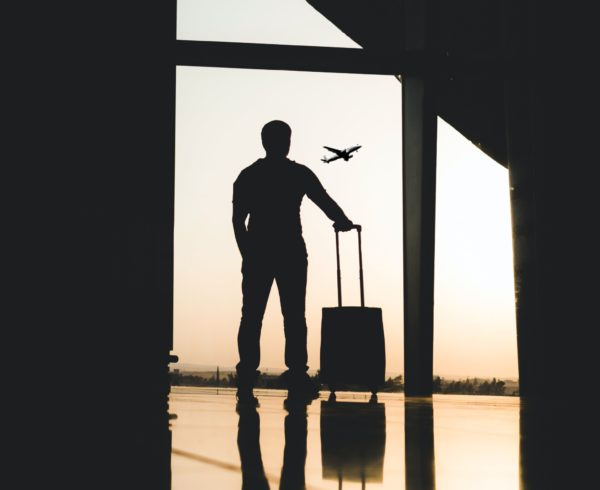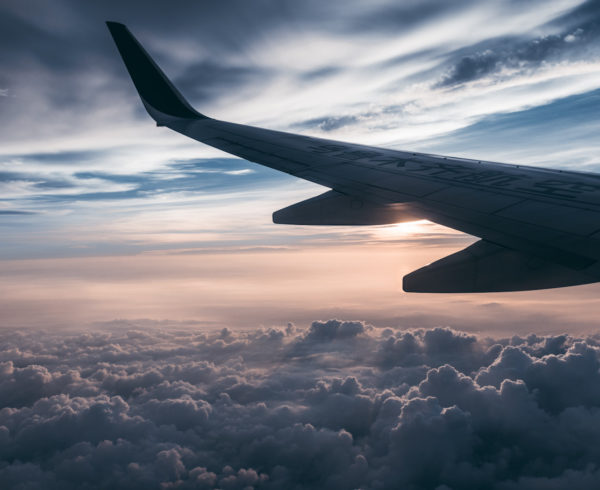Tourism is highly reliant upon aviation to transport customers to their locations, and through tourism economic spend, jobs are created, poverty alleviated and in the case of eco-tourism, conservation initiatives receive vital revenue. A host of industries operate either up or downstream through aviation within the tourism sector alone, while air freight is a vital supply chain link for businesses requiring critical goods and inputs.
Aviation’s importance has been underlined by the extreme difficulties it has faced due to the COVID-19 pandemic. International tourism collapsed within the space of a few weeks, declining by over 70% in 2020 to levels last seen in the 1980s. Borders were closed, governments imposed lockdowns and travellers became wary of leaving the confines of their home.
According to the International Air Transport Association (IATA), the global trade association for the world’s airlines, total losses in 2020 reached US $118 billion, with demand down 65,9% compared to 2019.
Two key metrics indicate the crisis facing the sector. The first is revenue passenger-kilometres (RPK), which shows the number of kilometres travelled by paying passengers, representing demand. The second is available seat kilometres (ASK), the total flight capacity of an airline measured in kilometres, representing capacity. Airlines as much as possible seek to match RPK with ASK to reach optimal levels of efficiency.
Upon COVID-19 reaching its pandemic tipping point in March 2020, RPK declined from approximately 700 billion to 50 billion between March and May 2020, a 92,6% decline in passenger demand. This drop off is unprecedented. The nearest comparison is the September 11 terrorist attacks, where RPK dropped by 31% in the months following the attack. By 2006, RPK was still 7,4% below its pre-September 11 levels.
As of January 2021, according to IATA, RPK was 72% below the levels experienced in January 2019, with domestic markets experiencing a 47,4% drop in demand for the same period. Between December 2020 and January 2021, total RPK declined 6.6% as new variants of COVID-19 became public knowledge and governments again implemented targeted travel restrictions.
Since its lows in mid-2020, the sector has recovered somewhat, with RPKs reaching approximately 200 billion as of January 2021, still over 70% from its January 2020 peak.
Aviation’s dilemma: Demand versus capacity
Adding to the sector’s woes is the broad level of uncertainty that COVID-19 has generated, undermining traveller and government confidence, making airline planning extremely difficult. From a macro-economic perspective, passengers are poorer than they were prior to the pandemic. When the recovery does occur, it will be gradual as economies and citizens recover.
As the aviation sector adjusts to the pandemic, and with vaccine rollout having begun around the world to differing levels, airlines both international and domestic have begun increasing ASKs for passengers in anticipation of increased demand. Airlines are seeking to create opportunities for passenger travel, yet if demand remains tepid, airlines will continue to bear the cost as they try and manoeuvre their way through the pandemic.
Aviation is a cost-intensive business, with airlines operating on a low margin-high volume basis. If volume is increased but not purchased, airline profitability is significantly affected given the tight margins these businesses typically operate within. Further, even if an airline grounds its planes until needed, strict maintenance protocols must be followed regardless, leading to further costs being incurred.
The crux of the challenges facing the sector is, “When do we increase availability to meet future demand?” This question is the sector’s dilemma: if too much capacity is made available without requisite demand, costs increase, and profitability suffers. However, if capacity fails to match demand, airlines are not operating to optimal efficiency and giving competitors the opportunity to grab vital market share.
Finding the correct balance in answering that question – and making decisions using high quality information – is how the sector can chart a realistic path of recovery within current constraints.
Letsema Corporate Finance is highly experienced within the aviation sector, having worked with both local and international airline. If your aviation business requires financial modelling, due diligence, valuation, transaction advisory, M&A advisory or capital raising services, contact Letsema Corporate Finance at coporatefinance@letsema.co.za









